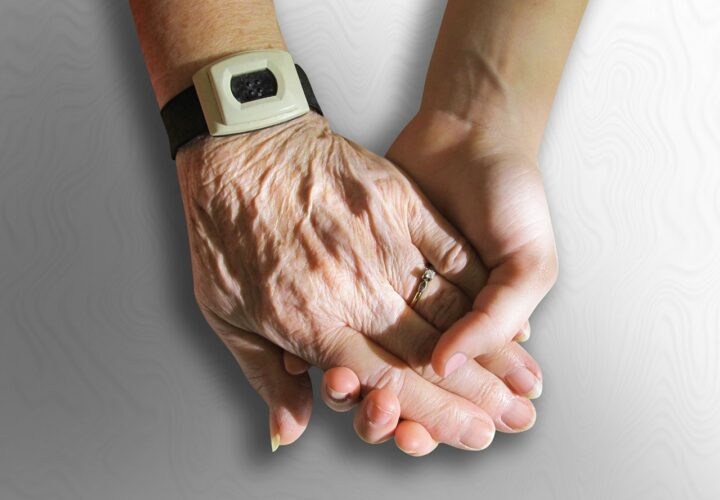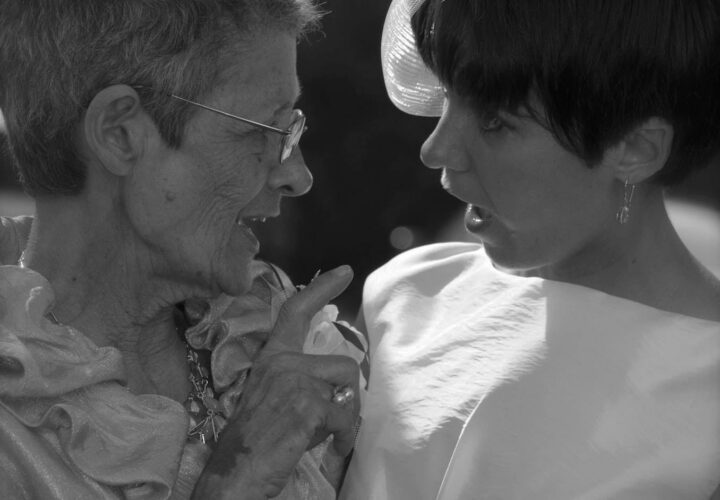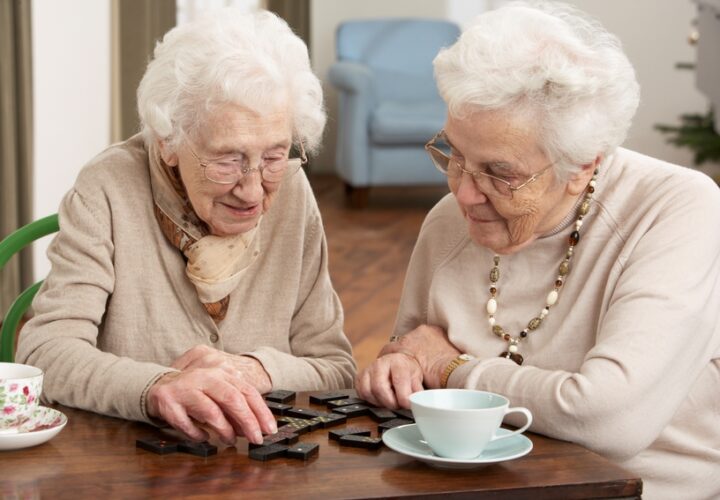The COVID-19 pandemic has forced people out of their daily routines and into isolation, bringing apathy, frustration and loneliness. These tips can help families cope.
According to a recent survey by the Alzheimer’s Society UK, a third of people with dementia are experiencing feelings of apathy and say they “feel like giving up” as a result of the stress of the coronavirus lockdown. The survey, which polled 1,831 people with dementia and their caregivers in June, found that nearly half of respondents said the lockdown has caused their mental health to suffer.
Jennie Clark, gerontologist and memory support program manager at Stanford Health Care, said that dementia is often accompanied by feelings of apathy, but the only way to truly understand the behaviors of someone living with dementia is to focus and sleuth into their minds: Why is this person behaving this way? What are they trying to tell us? Is the environment too noisy? Are they sleeping well?
“Apathy can present as irritability, acting out with sometimes verbal abuse, anger, angry outbursts,” Clark told Being Patient. “It can be so many of these different types of behaviors. So without understanding who the person is, what they want and what their needs are, we’re not really going to be able to help them.”
Clark said that if someone has seen a change in behavior of their family member or loved one, they should always contact their primary care physician, because there could be a medical reason as to why their behavior changes, and she recommends writing down what changes have happened in order to identify when they occur.
But during the pandemic, she said, these feelings of apathy may be connected to the distress that comes with isolation, a change of routine, and other stressors associated with the coronavirus.
Clark shared with Being Patient a few recommendations to help caregivers and people living with dementia mitigate some of the stress of this time.
Find Ways to Spend Time With Others, Even Remotely
Complying with pandemic safety measures requires isolation, and that’s no good. Loneliness has not only been linked to increased dementia risk — it can also increase stress and so worsen symptoms for people living with Alzheimer’s and related dementias.
“During COVID, routines are interrupted, and we’re not seeing people as much as we used to,” Jennie Clark said. “We’re social living creatures meaning we need to be around people. We need to be interacting and engaging, and creating meaningful experiences with each other.”
She added that fewer in-person social services are available to the community, and people are isolated, so the Memory Support Program recommends that people find ways to engage with others every day. But due to social distancing from the pandemic, people have had to get really creative and try to figure out how else they can share these moments of meaningful interaction.
“I think that’s probably been the biggest challenge for a lot of the patients and families that I work with,” she said.
In trying to address the new remote lifestyle, care facilities have begun to offer iPads to residents in order to allow for visitation from loved one’s who are unable due to COVID-19, while also providing distractions such as movies, games and audiobooks. Along with social technology, the popularity of robotic pets, who are very lifelike companions, is also on the rise.
Try to Maintain a Daily Routine
“Everyone’s different, so even if someone has the same diagnosis it’s going to affect them differently, and that’s based on their personality and their life experiences,” Clark said.
But for many people living with Alzheimer’s and related dementias, a break in routine or a lack of structure can cause distress and exacerbate symptoms.
“Having a structured daily schedule really gives [people living with dementia] that sense of control and that sense of security,” Clark said. “Without that, now people are working from home and so now instead of going to an adult day center, the person [living] with dementia is now at home and maybe they’re watching more TV, maybe they’re not on a regular routine and so it can absolutely look like apathy.”
When You Can’t Be With People, Make Use of Online Resources
She recommended The Eden Alternative, a website offering resources for families with loved ones living with dementia, adding that her favorite aspect of their site is their Domains of Well-Being, which can serve as a framework for people taking care of someone living with dementia. They include: identity, growth, autonomy, security connectedness, meaning and joy.
“We are meeting the needs of this person in each of these domains and if not, then chances are they’re going to have a lower well-being,” Clark said. “Then that might look like apathy, that might look like any of those other difficult behaviors that present, because of unmet needs.”
Elizabeth Edgerly, executive director of the Alzheimer’s Association Northern California and Northern Nevada Chapter, says that their chapter has shifted their support groups and other community resources to a virtual platform. Even with the resources available remotely, Edgerly believes there are still voids they are not able to fill.
“I think for people at any stage of dementia [the pandemic] is affecting them, and for early stage individuals I think it’s similar to what it is for all of us: It’s this struggle to be engaged and meaningfully active,” Edgerly said. “We’ve seen some apathy where people living with dementia can sometimes have a hard time initiating activities and certainly they can feel apathetic, so when you put [the pandemic] on top of this it makes it that much more difficult.”
Give Credit Where It’s Due
Although people living with dementia have been forced into isolation, the thought of reimmersion into daily life may raise new challenges with certain guidelines and expectations for social interaction.
According to the Alzheimer’s Society’s study, approximately a third of people living with dementia do not feel confident going outside as restrictions begin to loosen.
“It might be even more difficult to remember to follow these rules or to be safe interacting outside, so I think that until there’s a major shift in the pandemic it is going to continue to be a challenge,” Edgerly said.
While people living with dementia are having a hard time coping with the COVID-19 pandemic, caregivers are struggling to assist their loved one while also caring for themselves. This could include regular health checkups, mental health checkups, or talking to their primary care physician. Otherwise, they must create a support network, whether it includes family and friends, a therapist, caregiver support groups or any other types of services available to keep a caregivers head above water.
“There’s a lot of humanity there and caregivers really need to pause and pat themselves on the back for doing such a great job and you can only do so much, you can only do your best and you try your best everyday,” Clark said.
She added: “The person living with dementia’s life is better because of you, and I think caregivers really need to know that they are some angels in the world, and they’re saints doing really, really hard work to give the person that they care for and love a better chance at life.”





